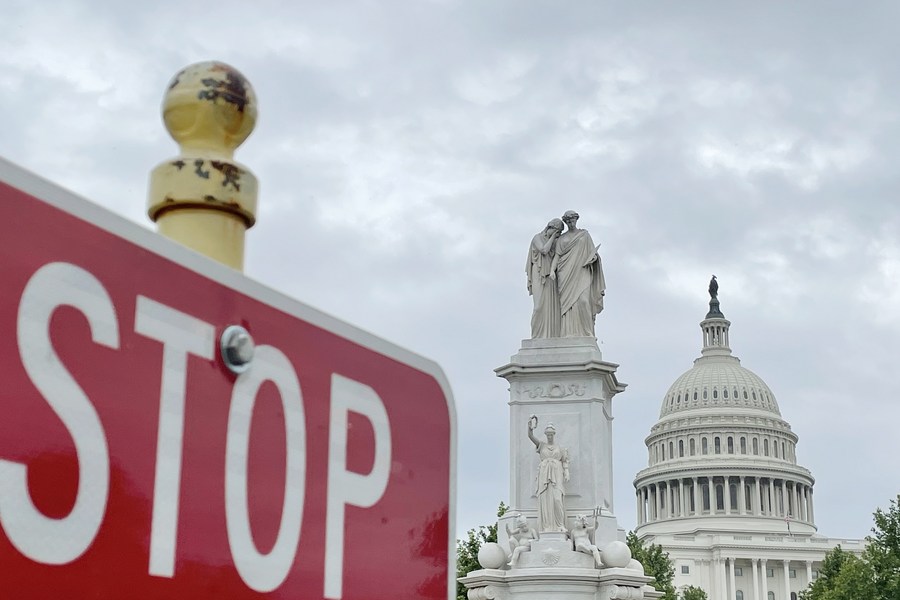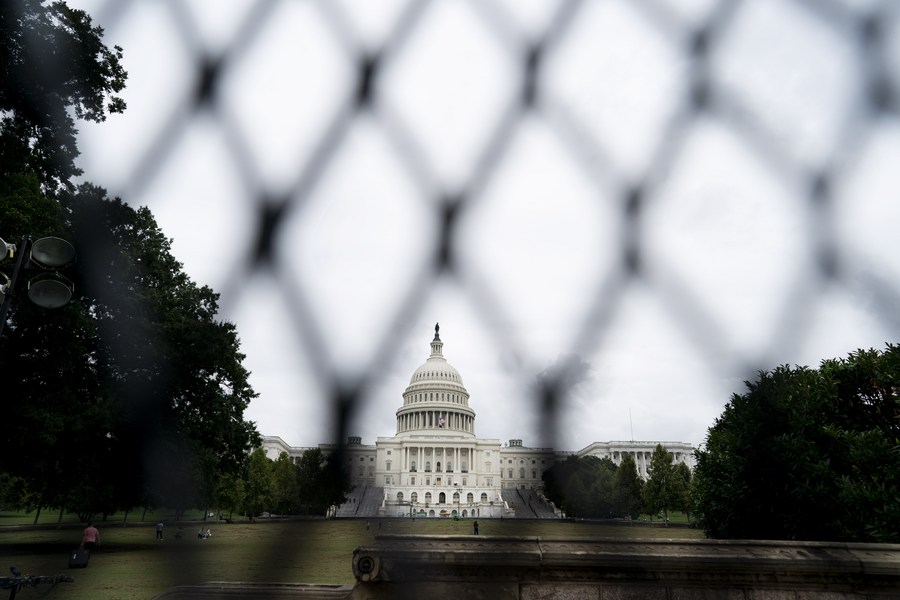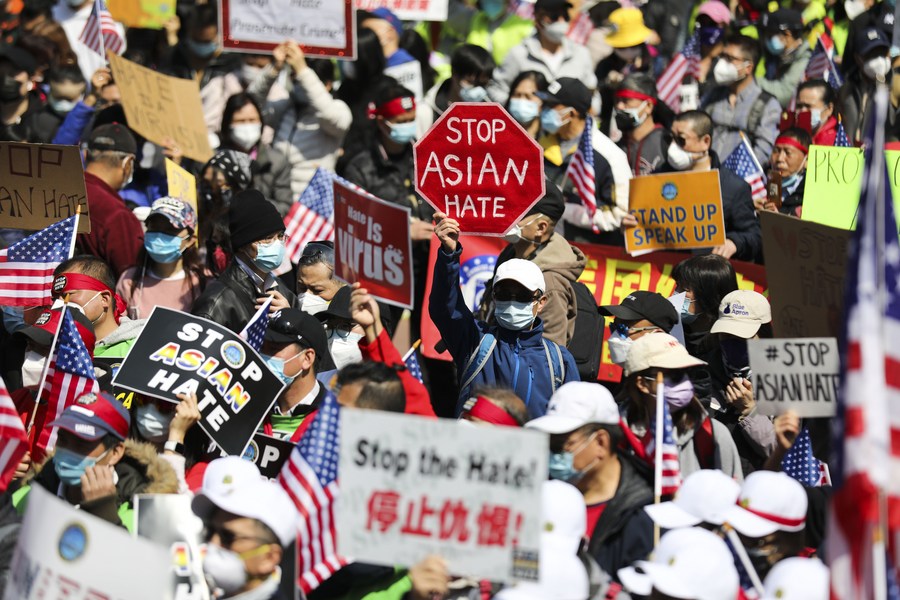Containing China not antidote to America's hegemonic anxiety

Photo taken on May 28, 2021 shows the U.S. Capitol building behind a traffic sign in Washington, D.C., the United States. (Xinhua/Liu Jie)
Such morbid fascination with containing others stems from the mounting anxiety of the United States, the world's sole superpower whose dream of global hegemony has run into intractable predicaments.
BEIJING, Sept. 26 (Xinhua) -- In recent years, the U.S. government has indulged in suppressing China, which ranges from illegal arrests of Chinese citizens and unwarranted oppression of Chinese enterprises to reckless interference in China's internal affairs and sinister attempts to form anti-China cliques.
Such morbid fascination with containing others stems from the mounting anxiety of the United States, the world's sole superpower whose dream of global hegemony has run into intractable predicaments.
America's anxiety can find its deep roots in Washington's long-standing hubris, which has been prevailing throughout the U.S. history. Since the declaration of independence in 1776, the United States has been bent on expanding its territory and influence.
After the United States' total industrial output jumped to the first place in the world in 1894, its expansion ambition has gone global. Since the end of World War II, the United States has reaped massive gains through military and financial supremacy.
With the collapse of the Soviet Union, the United States embraced its unipolar moment, and geared up to impose American-style values and democracy around the world.
From plotting "color revolutions" and promoting the "Neo-Monroe Doctrine" abroad to turning against its allies and quitting international treaties and bodies, Washington has spared no effort to defend its hegemonic status.

Photo taken on Sept. 17, 2021 shows the U.S. Capitol building, seen through a barrier fence, in Washington, D.C. (Xinhua/Liu Jie)
However, the United States is increasingly finding that its pursuit of global hegemony is encountering some serious challenges, which is mostly exemplified in its anti-pandemic debacle and the chaotic military withdrawal from Afghanistan.
As Francis Fukuyama, a senior fellow at the Freeman Spogli Institute for International Studies at Stanford University, pointed out, the long-term sources of American weakness and decline are more domestic than international.
Regrettably, Washington seems to have failed to realize that. To alleviate the anxiety resulting from its own problems, Washington has been accelerating its pace of containing China.
According to a recent study from Oxford Economics, a leading global advisory firm, Americans witnessed a boom of savings during the pandemic, but most of the gains went to the wealthiest 20 percent of Americans.
What's worse, deep-rooted racism, xenophobic tendencies and extremism in the United States are spreading along with the virus, with violence against Asian immigrants surging across the country.

People rally to protest against anti-Asian hate crimes on Foley Square in New York, the United States, April 4, 2021. (Xinhua/Wang Ying)
Meanwhile, the intensifying bipartisan struggle is tearing up the U.S. society, which severely undermines the continuity and rationality of the U.S. government's decisions.
The United States is suffering from these problems not because of China. Therefore, containing China can in no way to mitigate America's growing anxiety. Instead, containment is a double-edged sword. While containment has indeed hit some Chinese industries, but at the same time, it has increased the burden on America's domestic enterprises and ordinary people.
In the eyes of Martin Wolf, chief economics commentator at the Financial Times, "there will be much competition, but there must also be deep co-operation" between the two countries, and "containing China is not a feasible option."
The China-U.S. relationship is widely deemed as the most consequential relationship in the world. The two countries and the rest of the world will benefit from China-U.S. cooperation but suffer from their confrontation. A healthy and stable development of China-U.S. relations is not only in the fundamental interests of the two peoples, but also a common expectation of the international community.
Washington must be aware that its anxiety will never be relieved by smearing or attacking China. The antidote for the United States is to devote itself to combatting the pandemic, bridging social gaps and improving the welfare of its own people.
Washington should also sober up to the fact that China's peaceful development is unstoppable and can never be contained. Getting bilateral relationship right is not optional, but something must be done and must be done well.
Photos
Related Stories
- U.S. bullying, interference in Hong Kong doomed to fail: various sectors in HK
- Commissioner's office of Chinese foreign ministry urges Washington to reflect on its mistakes, stop meddling with Hong Kong affairs
- Innovation the "golden key" to some thorny issues for China-U.S. relations: Chinese ambassador
- Fact Sheet: U.S. Interference in Hong Kong Affairs and Support for Anti-China, Destabilizing Forces
- Democracy is not for embellishment, it should deliver: Chinese ambassador to U.S.
Copyright © 2021 People's Daily Online. All Rights Reserved.










